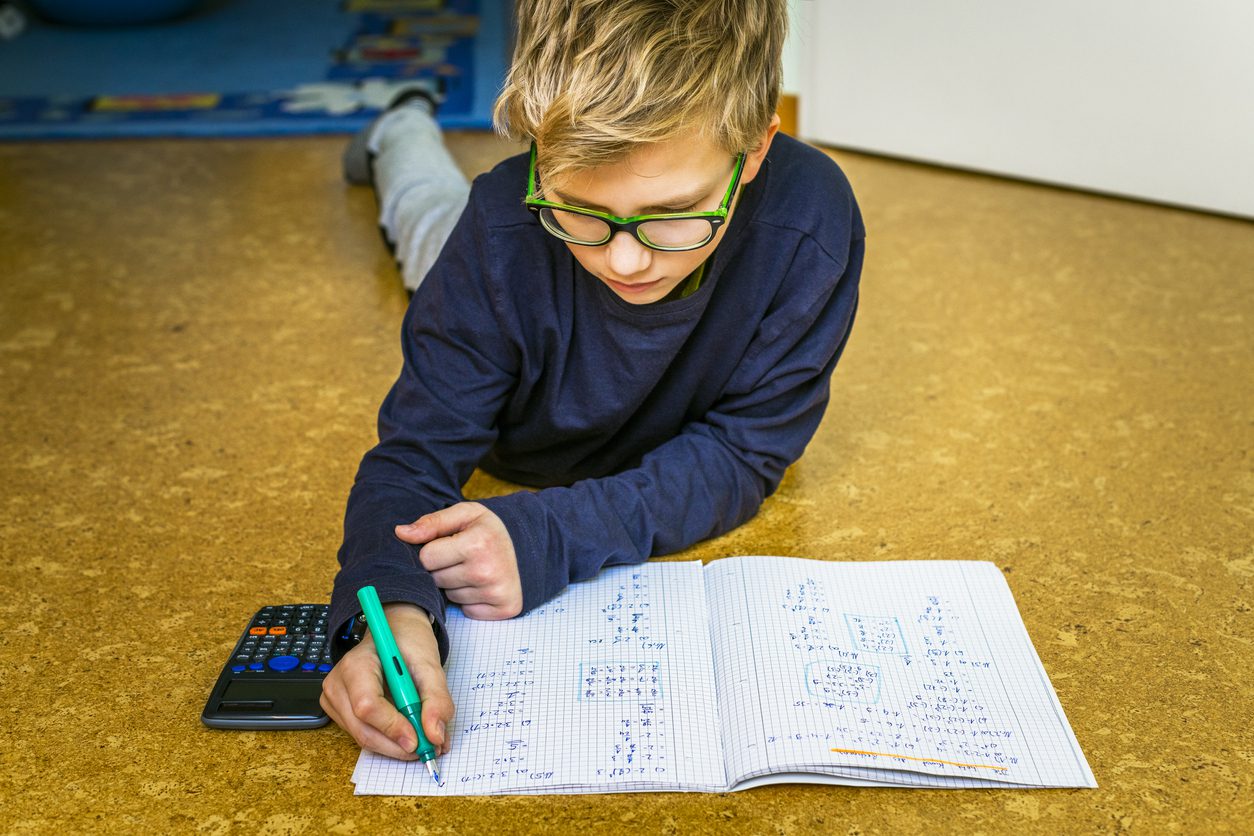Is your child struggling with school? Discover 10 signs they may need a tutor—from homework battles to low confidence—and how to help them thrive.
Table of Contents
You know your child better than anyone. When they’re frustrated with homework, avoiding certain subjects, or saying things like “I’m just not good at this,” your parental instincts kick in. You want to help, but sometimes you need a fresh perspective and approach that meets your child exactly where they are.
Here are ten signs that personalized one-to-one tutoring could help your child rediscover their confidence and love of learning.
1. They’re Working Hard but Still Struggling With Grades
When your child puts in the work but their grades continue to slip, it’s often a signal that they need a different way of looking at the material. This doesn’t mean they aren’t capable, they may simply need someone to explain concepts in a way that matches their unique learning style. You might notice their test scores dropping over time or see that while their homework is getting done, it’s often incorrect.
2. They’ve Lost Confidence in Their Abilities
Perhaps more heartbreaking than a poor grade is hearing your child say, “I’m just not smart.” When children start doubting themselves, it can create a negative cycle that affects their entire educational journey. This loss of confidence often shows up as a reluctance to participate in class, a tendency to avoid homework, or negative self-talk about their abilities.
3. Homework always ends in battles
If homework consistently turns into tears, arguments, or stress for everyone involved, it’s a clear sign that your child needs extra support. This struggle can look like taking hours to finish an assignment that should take 30 minutes, frequent meltdowns during study time, or constantly putting off work until the last minute.
4. Their Teacher Has Reached Out with Concerns
When a teacher expresses concern, they’re seeing patterns in a classroom setting that you might not notice at home. Teachers work with many students and can often spot when a child would benefit from focused, one-to-one attention. Listen for comments like, “They seem to understand in class but struggle on tests,” or, “I think some individual support would really help them connect the dots.”
5. They feel behind their classmates
It’s tough for a child to feel like they’re being left behind. If your child comes home saying, “Everyone else gets it but me,” or seems lost while others are moving ahead, they may need individualized support to fill in learning gaps and catch up to their peers at a comfortable pace.
6. They freeze up on tests
Some children understand the material perfectly but freeze during exams. If your child studies hard but their test scores don’t reflect their knowledge, they might be struggling with test anxiety. A tutor can teach them strategies to manage that anxiety, build confidence, and develop test-taking skills that allow their hard work to pay off.
7. You Suspect an Unaddressed Learning Difference
Children with learning differences like ADHD, dyslexia, or processing challenges often thrive with specialized, one-to-one support. A tutor can introduce approaches that work with their unique learning style. This can be especially helpful if you notice challenges with following multi-step directions, organizing thoughts, or difficulties in reading or math that seem out of sync with their overall intelligence.
8. They Haven’t Developed Strong Study Skills
Sometimes the issue isn’t a lack of understanding, but a lack of organization. Children who haven’t learned how to study effectively can struggle to keep up. This often looks like lost assignments, trouble planning for long-term projects, or not having a clear study routine, leaving them unsure of where to even begin. Tutor Doctor’s X‑Skills (executive functioning) program uses a straightforward Game Plan to coach core habits—organization, planning, time management, prioritization, and goal setting—by mapping commitments and setting realistic timelines.
9. They’re Bored and Need a Greater Challenge
Beyond catching up, tutoring is also for getting ahead. If your child finishes work quickly and accurately but seems disengaged or bored in class, they might benefit from enrichment that keeps them excited about learning. A tutor can provide the intellectual stimulation they need to stay motivated.
10. They Are Preparing for a Major Transition
Big academic steps—like moving from middle school to high school, preparing for college entrance exams, or taking on advanced placement courses—can be overwhelming. Tutoring can provide the foundational skills and confidence needed to navigate these transitions smoothly and successfully.
Quick Recap: What the Signs Really Mean
With so many signs to look out for, it helps to see them side by side. The table below sums up each sign, what it might mean for your child, and how tutoring can step in to make a difference.
| Sign | What It Means | How Tutoring Helps |
|---|---|---|
| Slipping Grades | The child works hard but struggles to understand concepts. | Breaks material into their learning style. |
| Low Confidence | They’ve stopped believing in themselves. | Builds progress that restores self-belief. |
| Homework Battles | Stress and arguments at home. | Turns learning into guided, calm sessions. |
| Teacher Concerns | Gaps noticed in a class setting. | Fills those gaps with 1:1 focus. |
| Feeling Behind | They can’t keep pace with peers. | Provides personalized support at their own pace. |
| Test Anxiety | Knows material but freezes in exams. | Teaches test-taking and confidence strategies. |
| Learning Differences | ADHD, dyslexia, or processing challenges. | Uses tailored methods that work with their strengths. |
| Weak Study Skills | Disorganized, with no clear system. | Builds routines, planning, and structure. |
| Boredom | They’re ahead and unstimulated. | Provides enrichment to keep them engaged. |
| Big Transitions | Facing a new academic stage. | Prepares them with skills and confidence. |
When to Consider a Tutor
If several of the signs feel familiar, you’re not alone. Many families see the same patterns, it’s not about failing as a parent or a student. It’s simply a sign that your child might need support and that’s where one-to-one tutoring comes in. Think of it as giving your child exactly what they need to succeed.
Consider whether you’ve tried everything you can think of at home, and if your child might simply benefit from hearing things explained in a new way. If the answer is yes, a tutor could be the partner your child needs.
Finding the Right Match for Your Child

Finding the right tutor that connects with your child is important and shouldn’t be taken for granted. When you’re looking for a tutor, it’s about more than just finding someone with subject matter expertise. The ideal tutor is someone who truly connects with your child, creating a sense of comfort and trust where it’s safe to ask questions and make mistakes without fear of judgment. Beyond that personal connection, they should have the patience and creativity to explain things in multiple ways until a concept finally clicks. Just as importantly, a great tutor keeps you in the loop, ensuring you feel like a valued partner with clear communication about your child’s progress, challenges, and successes.
Give Your Child the Support They Deserve

Every child learns differently, and that’s perfectly okay. What matters is finding support that matches your child’s pace, personality, and learning style. Whether they need to catch up, stay on track, or stretch further ahead, the right tutor can help them feel confident and capable again.
If you’re seeing these signs in your child, consider exploring how personalized, one-to-one tutoring could help them unlock their full potential. Schedule a free consultation to learn how a personalized plan can help your child.




